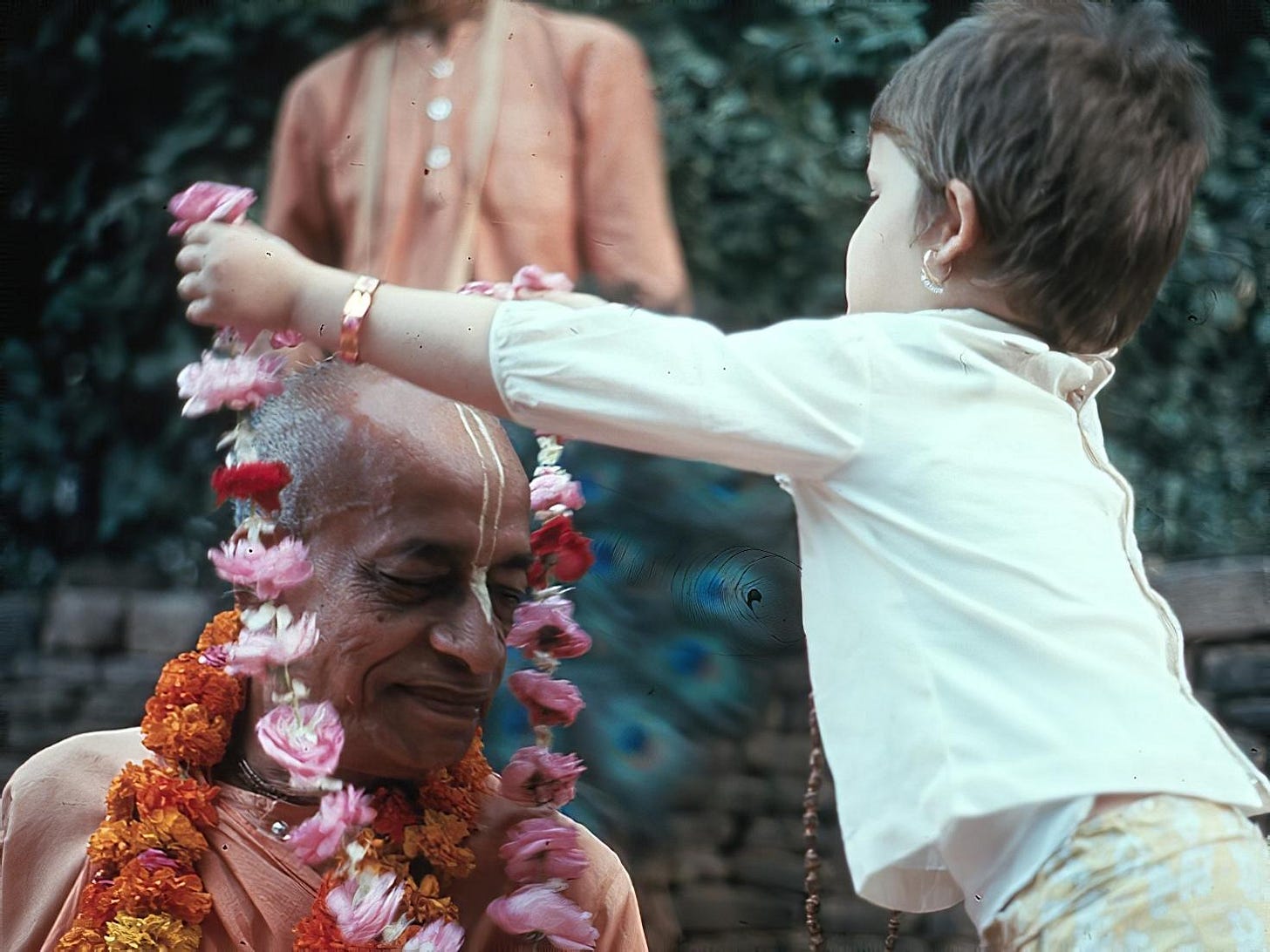Can we progress in devotional service without a spiritual master?
On the one hand, the scriptures advertise the potency of the holy names. On the other hand, it's said we can't go back to Godhead without a spiritual master. How to reconcile these two points?
Often we say that devotional service is eternal and even if someone does just a little bit in this life he can be saved. Srila Prabhupada went as far as saying that if someone reads just one line of his books his life can change. Krsna Himself says in the Bhagavad-Gita that "In this endeavor, there is no loss or diminution, and a little advancement on this path can protect one from the most dangerous type of fear."
Seeing from this optic, everything is very simple and easy. We just need to spread the mercy by chanting in public and distributing books and people will automatically become Krsna Conscious. Why then bring all the institutional talk about accepting a guru? Why can't people just practice on their own?
On the one hand, the scriptures advertise the potency of the holy names, giving examples like the history of Ajamila who was saved by just chanting once the name of Narayana when calling his son. On this line, there are statements like "there are no hard and fast rules" by Mahaprabhu. On the other hand, the same scriptures say that one can't go back to Godhead without accepting a spiritual master and being trained under him. How can we reconcile the two sides?
The point is that these two categories of statements refer to people in different stages of spiritual development. Anyone can start and go to a certain point by just reading books and chanting, that's why Srila Prabhupada asked us to distribute his books. There is no pre-requisite for taking a book or for chanting when devotees go on harinama. Everyone is welcome to join, regardless of having a pious or sinful life, being clean or not, being educated or not, etc.
At a certain point, however, one should accept a spiritual master to move further. When one comes to this stage, different layers of discipline become necessary. One has to abandon previous sinful habits and lead a clean life. He needs to be submissive to the spiritual master (a student who is not submissive can't properly learn) and so on. That's what Krsna says in the Bhagavad-Gita: "Just try to learn the truth by approaching a spiritual master. Inquire from him submissively and render service unto him. The self-realized souls can impart knowledge unto you because they have seen the truth."
There are therefore two priorities: to convince people to start, and to convince devotees who already came to a certain level to go further. When we talk to new people we emphasize the flexibility of the process, the absence of hard and fast rules, and so on. This encourages them to start practicing and thus benefit from the chanting and association with devotees. This is not a "preaching strategy", it is true in the level they are, and the proper instruction at the moment.
There is however a limit on how much one can advance by practicing spiritual life on such an amateurish level. Theoretically, one can go up to the stage of liberation, as explained by Srila Haridasa Thakura, but it is improbable that one will achieve pure love of Godhead through this process. After graduating at this level, it's time to accept some higher level of practice in order to advance further.
Of course, there is no loss or diminution, therefore even one who is reluctant to become serious in spiritual life will have other chances in the future. It's up to each of us to decide how eager we are to become free of this material world. The ones who are not in a hurry may stay a little more and continue playing with the material energy for some more time, accepting the risks and shortcomings of doing so. For the ones who are serious about getting out, however, there is a certain process to be followed. One can learn a lot by watching videos on YouTube, but to advance past a certain point one must go to a university or find a private teacher.
When we speak about a spiritual master, some may raise the issue of diksa and siksa. Our parampara, as envisioned by Srila Bhaktisiddhanta Sarasvati Thakura is a siksa parampara. Srila Bhaktivinoda Thakura had a diksa guru, Srila Bipin Bihari Goswami, but his relationship with his siksa guru, Srila Jagannatha Babaji Maharaja is considered much more important. However, this doesn't change much since the process of approaching the siksa guru is the same as that of approaching the diksa guru. Nor is the siksa guru less important. The fact one has a siksa guru doesn't eliminate also the need for a diksa guru. Both of them represent thus two different manifestations of the guru and one doesn't nullify the other.




Hare krsna prabhuji. Thank you for writing this , you answer so many doubts in devotees.